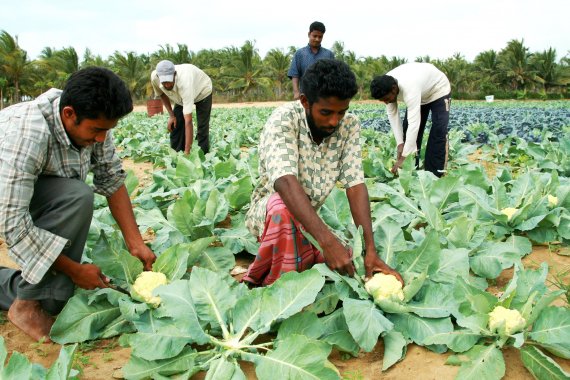
Development and Investment Programme

Photo © ILO/M. Crozet
Team
Development and Investment Programme
Building peace, fostering social cohesion, and generating jobs
1,800+
Participants
of whom 50% were women
62
Countries
A diverse group of participants
5
languages
Activities were offered in English, Arabic, French, Spanish and Dari
- Overview
- Employment Intensive Investment Programmes
- Jobs for Peace and Resilience
- Transition from the informal to the formal economy
- Procurement for sustainable development and inclusion
- Trade and investments
- Digital inclusion
Despite the enormous technological achievements, improvements in the conditions of work and standard of living of billions of people, and the enormous wealth that has been generated over the last century, many of the same challenges that the ILO faced when it was founded in 1919 are still with us today. Unemployment and underemployment remain key societal challenges, with approximately 600 million jobs that need to be created by 2030 just to keep pace with the growth of the working age population. Today, more than 61 per cent of the world’s employed population, make their living in the informal economy. Environmental degradation is affecting the quality and the quantity of jobs available, and nearly 2 billion people are currently estimated to live in fragile and conflict-affected contexts, where poverty is increasingly concentrated.
The COVID‑19 crisis has exacerbated such pre-existing structural challenges and decent work deficits, resulting in even greater inequalities across the world.
By providing a mix of training and capacity building services, the ITCILO DEVINVEST Programme assists ILO constituents, ILO and UN staff, and other development partners and stakeholders in tackling the challenges above by supporting:
- the planning and implementation of employment-intensive investments;
- employment-centred policies for countries in a fragile contexts affected by conflict and disasters and building resilience for marginalized populations.
- employment and productivity enhancements in rural economy and facilitating transition to formality
- to maximize the employment impact of trade and sectoral policies
The ITCILO DEVINVEST Programme gives special attention to the inclusion of vulnerable groups, including digital inclusion, and strengthening public procurement as a tool to support the adequate implementation of employment intensive investments programmes .
Adequate infrastructure is a prerequisite for sustainable economic growth and social development. Equally important is for infrastructure projects to factor in employment generation, however, so as to reduce poverty and social injustice among the most vulnerable people.
Employment-intensive investments link infrastructure development with employment creation, poverty reduction and local economic and social development. Whilst labour-based construction activities result in short-term employment, the improved infrastructure they produce contributes to increasing economic performance in other sectors, generating multiplier effects on employment and income throughout the economy. In addition, the use of labour-based work methods ensures the participation of the local community in the entire work process to secure maximum benefits for women, men and youth.
The ITCILO DEVINVEST Programme offer training and capacity development services to strengthen the capacity of constituents and stakeholders to design and implement employment intensive investments projects, optimizing infrastructure investments, increasing their employment impact and climate change adaptation.
The current global context calls for the international community to act in the face of increasingly complex crises, such as climate change, pandemics, armed conflict, forced displacement, irregular migration, trafficking in persons, radicalization, and terrorism.
Today, despite the efforts and progress made by many countries and the international community, nearly 2 billion people are still living in fragile and conflict-affected situations, where poverty is increasingly concentrated. Crises of different nature interrupt business activities, damage workplaces and destroy jobs, exacerbating vulnerability, inequality and social exclusion and highlighting, in these contexts too, the centrality of the world of work.
The ITCILO DEVINVEST Programme offers training and capacity development services to promote employment generation for countries experiencing conflict and disasters. It aims to strengthen the capacity of governments, social partners and relevant stakeholders to design and implement strategies to promote peace, prevent crisis, and build resilience.
Of the 2 billion workers and business owners in the informal economy, almost 1.6 billion have been significantly affected by the COVID-19 pandemic, leading to an estimated decline in their earnings of 60 per cent.
The informal economy manifests itself in a variety of forms across and within economies. Formalization process and measures aiming to facilitate transitions to formality need to be tailored to specific circumstances that different countries and categories of economic units or workers face.
Through its training and capacity building activities, the ITCILO’s DEVINVEST Programme supports ILO constituents and other stakeholders with the design and implementation of integrated policy frameworks that facilitate transitions from the informal to the formal economy.
Public procurement management is a cornerstone of good governance. It cuts across all economic sectors and constitutes 15-30% of gross domestic product in most countries, while enhancing market competitiveness and sustainable development. In emergency and fragile situations public investments are crucial to generate employment and improve livelihoods, therefore supporting effective national and local public procurement systems is very important.
The COVID-19 crisis has highlighted the need to improve governance and speed up the delivery of critical supplies and services. The aftermath of the pandemic is an opportunity to design resilience-oriented procurement strategies and processes based on the selection of reliable providers; the creation of a portfolio of providers to be activated in case of emergencies; and the use of contracts to allow flexibility and outcome assurance.
The ITCILO DEVINVEST Programme offers training and capacity development services to strengthen effective public procurement to support the effective implementation of employment intensive investments programmes, sustainable development and inclusion.
COVID-19 had a severe impact on trade and subsequently on employment, especially on sectors relying on imported intermediate inputs and exposed to falling consumer demand. Factory shutdowns resulted in initial supply shocks for which shortages of intermediate inputs were rapidly transmitted along global supply chains, creating secondary factory shutdowns in a process of supply chain contagion.
While falling exports as a result of COVID-19 have a more immediate impact on employment, a more fundamental challenge for developing countries may result from the possible restructuring of global supply chains. This could include greater reliance on regional supply chains and increasing supplier diversity .
The ITCILO’s DEVINVEST Programme aims to support ILO constituents to maximize the employment impact of trade and sectoral policies.
New technologies are continuously transforming the world of work. Technology is transforming not only the way we work but also how we work and even why we work, for workers and economic units.
Technologies can play an instrumental role in generating decent work opportunities. The increasing adoption of ICTs in everyday life, combined with the growing marketplace for digital goods and services, are providing new work opportunities, many of which can be extended to semi- and low-skilled workers, also in fragile settings.
However, in the absence of specific contextual conditions needed for the digital revolution to have a positive impact on generating decent employment opportunities, digital technologies may introduce new exclusion dynamics disproportionally affecting already marginalized groups, such as refugees, people with disabilities and elderly people.
Through its training and capacity development’s offer, the ITCILO DEVINVEST Programme aims to equip ILO constituents and development practitioners with the conceptual and practical tools needed to leverage the employment opportunity-generating potential of digital technologies and digitally inclusive practices.
1.5
billion people living in fragile conditions worldwide
65.5
million people displaced by war and persecution
14
million people displaced by natural disasters every year
300
million environmental migrants by 2050
Projects
Innovative training and learning initiatives for global development
Resources
Publications, tools, databases, and many more enriching materials
News
Noteworthy updates on our work around the world
Want to talk?
INTERNATIONAL TRAINING CENTRE OF THE ILO
Development and Investment Programme
Viale Maestri del Lavoro, 10
10127 Turin – Italy
devinvest@itcilo.org
+39 011 693 6975
+39 011 693 6365




































